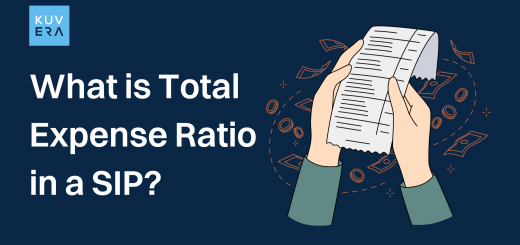Corporate bond funds are debt funds that invest primarily in corporate bonds with the highest credit ratings. Many companies and firms issue bonds to investors to raise capital for their operations or expansion. By investing in bonds, corporate bond funds offer investors high liquidity and attractive risk-adjusted returns.
Read along to know more about these debt funds and how they work.
What Are Corporate Bond Funds?
According to SEBI, corporate bond funds are open-ended debt funds that invest at least 80% of their total assets in corporate bonds with the highest credit ratings. These bonds or non-convertible debentures have a rating of AA+ or above. Many of these debt funds allocate some of their assets to government securities, which carry no credit risks.
Companies with the highest credit ratings are financially strong and have a high chance of repaying their lenders on time. That is why corporate debt funds carry minimal credit risk though they can be sensitive to interest rate risks. It is important to remember that a top-rated company can default on its debt though it is unlikely.
These debt funds offer a relatively high degree of safety due to their high-quality investments. They also offer higher returns compared to traditional investments like fixed deposits.
How Do Corporate Bond Funds Work?
Companies can raise capital through debt or equity to continue operations or fund future expansions. Many companies prefer the debt route as issuing bonds does not dilute the shareholding pattern. Thus, many private and public companies issue corporate bonds.
When a company issues bonds to investors, it borrows money from them. The company promises to repay the principal amount through the bond’s terms after a certain maturity period. In addition, the company pays interest or coupons on the initial investment.
These debt instruments form the underlying portfolio of corporate bond funds. The prices of underlying bonds in a portfolio can go up due to increased demand. This generates additional returns over and above the fixed interest of the bond. The debt fund’s NAV (Net Asset Value) rises, and investors profit from it.
Corporate bonds are assigned credit ratings by credit rating agencies based on their quality and the company’s creditworthiness. Lower-rated bonds typically offer higher yields but come with higher credit risks. Corporate debt funds invest primarily in bonds with the highest ratings, which carry the lowest risk.
Who Should Invest in Corporate Bond Funds?
The following investors may consider investing in corporate bond funds:
-
Investors looking for stable income:
Returns from corporate debt funds tend to be predictable. However, there is no guarantee of steady returns. Long-term debt funds like corporate bond funds become riskier when the interest rates fluctuate.
-
Those with a moderate risk profile:
Corporate bond funds carry lower risks than other debt funds. However, they are not entirely risk-free. Thus, investors will want moderate risk tolerance when investing in these funds.
-
For conservative investors:
Corporate bond funds that invest in the highest quality debt instruments ensure capital preservation. This makes them ideal for risk-averse investors looking for fixed income rather than aggressive investors.
-
For medium-long term horizon:
These debt funds are suitable for investors with an investment horizon of around 2-3 years. Investors who want the indexation benefit on capital gains taxes will want to invest for at least three years.
Features of Corporate Bond Funds
The following are some of the features of corporate debt funds:
-
Primary allocation:
These mutual funds invest primarily in debt instruments issued by companies. These include bonds, commercial papers, debentures, and structured obligations. Each of these can have its unique maturity dates and risk profile.
-
Other allocations:
Corporate bond funds tend to invest a small amount in government securities, especially when there are no suitable opportunities for high-quality corporate debt. In addition, they can invest in sovereign fixed-income securities.
-
Bond price:
A change in the market interest rates can affect the price of bonds. The longer the bond maturity period, the more its price variation will be due to interest rate changes. You may want to check the prevailing rates before investing.
-
Maturity Duration:
There is no restriction on the maturity duration of securities a corporate bond fund holds. While some funds invest in bonds with short-term maturities, others invest in medium-term or long-term maturity periods ranging from 4 to 7 years.
-
Coupon:
This term refers to the interest rate offered by a bond expressed as a percentage of the par value. Any company must pay regular interest to its bondholders till the maturity date.
-
Bond yields:
The current yield of a bond refers to its total annual returns. Yield to Maturity (YTM) refers to the in-house returns rate from all the cash flows of a bond. This includes the bond’s coupon payments, principal investment, and gains from price changes. The higher the YTM, the higher will be your profits.
-
Par value of a bond:
The par value is the amount that the bond issuer will pay upon its maturity. This includes the principal investment and fixed interests.
Benefits of Investing in Corporate Bond Funds
Given are some of the many benefits of investing in corporate bond funds:
-
Higher returns than other debt funds
Corporate bond funds tend to deliver higher returns compared to other categories of debt funds. On average, these mutual funds deliver returns of around 8% to 10%, while gilt funds usually deliver half the profits. Despite these rates, their risk levels remain low.
-
Stable performance
These debt funds tend to deliver better returns with lower risk compared to other categories. Over the past several years, their risk-adjusted returns have been highest as measured using their Sharpe ratio. The performance of the best corporate bond funds has been stable even during major financial upheavals in recent years.
-
Scores high on safety
As these debt funds provide exposure to top-quality corporate bonds, they offer a high degree of safety compared to many other debt fund categories. The Corporate bond funds are also less sensitive to interest rate changes than most other debt funds.
-
High liquidity
Top-rated debt instruments, especially those with AAA and AA+ ratings, tend to be highly liquid due to their high demand. As a result, fund managers can rebalance the portfolio of corporate debt funds as per the prevailing market conditions. This makes it easy for you to enter and exit these schemes.
-
Varieties in investments
Corporate bond funds can invest in debt instruments with different tenure and credit ratings. Various types of bonds are based on their maturity periods in the market, including short-term, medium-term, long-term, and perpetual bonds. The top corporate bond funds can choose different maturity tenures for different investment objectives.
Things to Check Before Investing in Corporate Bond Funds
Before investing in a corporate bond fund, consider the following factors:
-
Returns expectation:
You can check the past performance of a corporate bond fund to get an overview of its expected returns. However, it is important to remember that this is no guarantee for future returns, and many companies have defaulted in the past.
-
Risk appetite:
The risks of these debt funds vary with the quality of bond investments. While investments in top-rated debt instruments carry the least risk, it usually generates average returns. In contrast, lower-rated bonds carry more risk but can be highly rewarding.
-
Investment horizon:
These debt funds invest in corporate bonds with medium to long-term maturity periods. They are ideal for investors with a long-term investment horizon. However, long-term investments in debt funds carry higher risks.
-
Fund manager’s role:
Fund managers of corporate bond funds decide what credit ratings to choose to balance risks and returns. Skilled fund managers can check the market conditions to decide which investments to pick. Thus, you will want to check the fund manager’s track record before investing.
-
Costs and expenses:
All mutual funds levy a charge to cover the expenses related to management and operations. This charge is called an expense ratio. The expenses of a mutual fund scheme include distribution fees, fund management fees, advertisement expenses, etc. Some fund houses charge an exit load to discourage premature withdrawals.
Final Word
Corporate bond funds offer a combination of relatively high safety with above-average returns for a debt fund. While their risks are low, you will want to check the prevailing interest rates and their potential risks and returns. It is a good idea for new investors to stick with high-rated short-term corporate debt funds.
On Kuvera, you can invest in the direct plans of the best corporate bond funds, at zero commission. Apart from that, you can set your financial goals and discover the best investment options accordingly. To get started, download the Kuvera app or visit our website and create your account and get your KYC formalities completed in minutes.
Frequently Asked Questions
-
How are corporate bond funds taxed in India?
If you redeem your investments in these schemes within three years, you should pay short-term capital gains (STCG) tax based on your income tax slab. For a longer investment period, long-term capital gains (LTCG) tax is applicable at a 20% rate with the benefit of indexation.
-
Can retail investors in India directly purchase corporate bonds?
Yes, retail investors in India can directly invest in newly issued bonds by participating in the offer. Moreover, they can buy bonds from existing investors through the secondary market.
-
How do corporate bond funds deliver returns?
There is a debt market where bonds are traded. Prices of bonds can fluctuate in these markets, just like stocks in the secondary market. If a mutual fund purchases a bond at a discounted price to its face value, it will receive a higher yield.
-
Do you need market knowledge to invest in corporate bond funds?
Yes, having some market knowledge helps investors understand corporate bond funds’ potential risks and returns. New investors will want to stick to highly rated and short-term bond funds of large AMCs to avoid high risk.
Interested in how we think about the markets?
Read more: Zen And The Art Of Investing
Check out all our “Investor Education Originals” videos on Youtube and get smart about investing.
Start investing through a platform that brings goal planning and investing to your fingertips. Visit Kuvera.in to discover Direct Plans and Fixed Deposits and start investing today.
#MutualFundSahiHai #KuveraSabs











